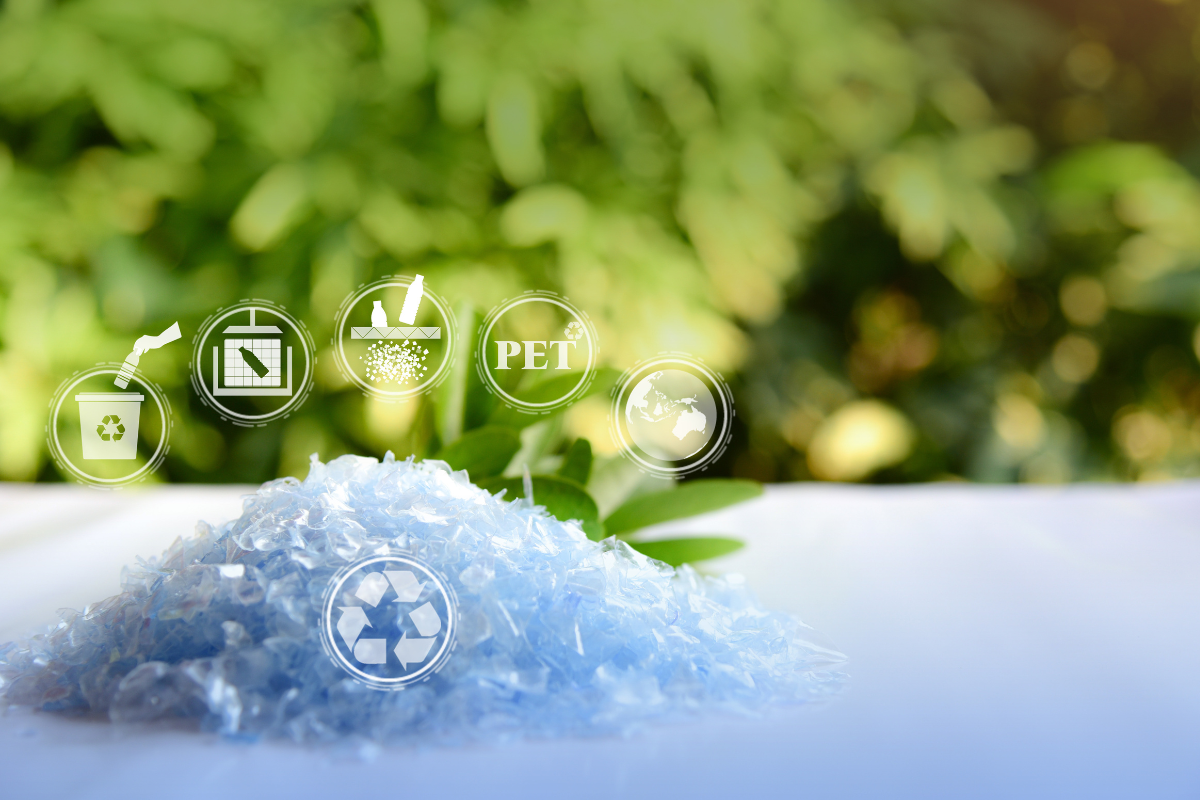
The Recycling Partnership recently highlighted questions around chemical recycling. | RecycleMan/Shutterstock
Plastic recycling technologies that fall under the umbrella of chemical recycling must prove that they meet genuine needs and benefit people and the natural environment, The Recycling Partnership said earlier this month.
“Recycling has always evolved and changed,” and chemical recycling is just another innovation “responding to the reality that some … plastics in the current packaging stream are difficult or unable to be recycled mechanically,” the nonprofit said in a position statement on its website.
Yet chemical recycling raises questions that must be answered before its widespread adoption, including its fundamental motivations, economic feasibility and impact on recycling facilities’ surroundings, according to the statement.
Chemical recycling should be better for the environment than new plastic production, for example, and shouldn’t harm low-income communities that often bear a disproportionate burden of industrial pollution.
“The dialog around chemical recycling makes it clear that system change, not silver bullets, will be the solution,” The Recycling Partnership said. “Change is good, but it needs to be planet-positive, transparent, and measurable.”
Chemical recycling breaks plastics down to their molecular building blocks via chemical reactions rather than conventional processes like chopping and pelletizing. The aim is for the plastics to be manufactured afresh as if they were virgin material, in contrast with the limited number of reuse cycles possible otherwise.
“The proprietary Exxtend technology enables the breakdown of plastic waste that would previously be destined for landfills – from synthetic athletic fields to bubble wrap and motor oil bottles,” ExxonMobil said in 2022, announcing the startup of a major chemical recycling plant in Texas. “Advanced recycling is a proven technology that can help accelerate a circular economy and address the challenge of plastic waste.”
The Recycling Partnership’s statement touches on widespread concerns over the practice, however. Many environmental groups remain skeptical or outright opposed to the technique, calling it “greenwashing” and a “dangerous deception” that allows plastic manufacturers to avoid growing pushback to the environmental and health effects of making and using plastic.
There’s also been a flurry of legislation around how to regulate chemical recycling facilities, and the technology is largely still being scaled to commercial levels.
Reporting on the same ExxonMobil complex in Texas, InsideClimateNews recently noted that it’s unclear whether chemical recycling’s end products actually replace virgin materials.
“Exxon is just too conflicted in needing to protect and expand its giant production of plastics,” Terry Collins, a professor of chemistry at Carnegie Mellon University, told the news outlet.

